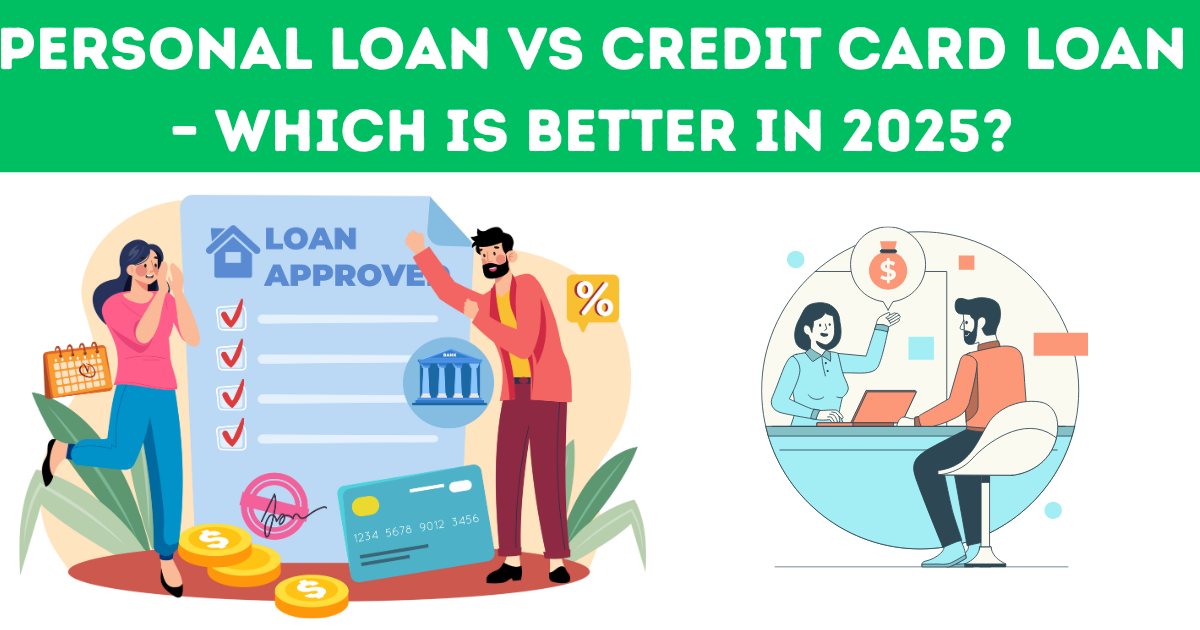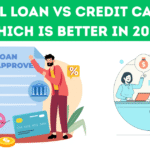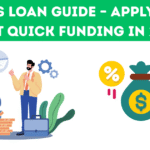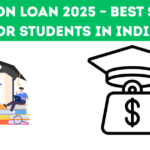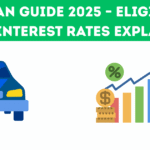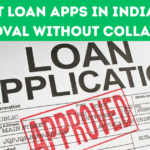In today’s digital age, credit has become an important part of financial planning. Whether it is handling emergency expenses, paying for higher education, funding a wedding, or renovating a home, loans are one of the easiest ways to get quick financial support. Among the many borrowing options available in India, personal loans and credit card loans are the most popular.
While both offer fast funding without the need for collateral, they work very differently. Choosing between the two depends on your financial goals, repayment capacity, and the urgency of funds. Many borrowers in 2025 are confused about which option is better and often wonder: “Should I take a personal loan or a credit card loan?”
This detailed guide will explain everything about personal loans and credit card loans, compare them side by side, and help you make the right decision.
What is a Personal Loan?
A personal loan is an unsecured loan offered by banks and non-banking financial companies (NBFCs). Since it does not require any collateral, lenders rely heavily on your credit score, income, and repayment history before approving the loan.
Features of personal loans in 2025 include:
- Loan amount ranging from ₹50,000 up to ₹40 Lakhs
- Interest rates starting around 10% per annum
- Repayment tenure between 1 year and 7 years
- EMI-based repayment structure
- Available to salaried, self-employed professionals, and business owners
- Documentation includes Aadhaar, PAN, salary slips, or ITR for self-employed
A personal loan is suitable for large financial needs such as weddings, higher education, medical treatment, travel, or even debt consolidation.
What is a Credit Card Loan?
A credit card loan is a type of loan extended against your existing credit card limit. Many banks pre-approve these loans for cardholders with a strong repayment track record. The loan amount depends on your unused credit card limit, and the processing is almost instant.
Features of credit card loans in 2025 include:
- Loan amount limited to available card limit
- Interest rates between 15% and 36% per annum
- Tenure usually between 6 months and 5 years
- Instant approval and disbursal
- No additional documentation needed if you already have a credit card
- Best suited for short-term or emergency expenses
Personal Loan vs Credit Card Loan – Detailed Comparison
| Criteria | Personal Loan | Credit Card Loan |
|---|---|---|
| Loan Amount | ₹50,000 – ₹40 Lakhs | Depends on unused card limit |
| Interest Rates | 10% – 24% p.a. | 15% – 36% p.a. |
| Tenure | 1 – 7 years | 6 months – 5 years |
| Approval Time | 24–48 hours (sometimes instant) | Immediate |
| Collateral | Not required | Not required |
| Best For | Large financial needs with long repayment | Short-term urgent needs |
Eligibility for Personal Loans vs Credit Card Loans
Eligibility depends on the type of loan.
For Personal Loan:
- Age between 21 and 60 years
- Minimum salary of ₹20,000–25,000 per month
- Minimum 1 year of work experience
- CIBIL score of 700+ preferred
- Income stability proof required
For Credit Card Loan:
- Must be an existing credit card holder
- Good repayment track record with no defaults
- Loan amount limited to card’s unused credit limit
- Higher approval chances with CIBIL score of 700+
Advantages of Personal Loans
- Higher loan amounts, suitable for big-ticket expenses
- Longer repayment tenure for better EMI management
- Lower interest rates compared to card loans
- Fixed monthly EMIs for structured repayment
- Can be used for multiple purposes
Advantages of Credit Card Loans
- Quick and hassle-free disbursal
- No additional documents required
- Suitable for emergencies like medical needs or travel
- Can convert purchases into EMIs instantly
- Sometimes banks offer zero processing fees
Disadvantages of Personal Loans
- Processing may take longer compared to card loans
- Higher processing fees in some cases
- Prepayment charges may apply if you want to close early
- Requires income proof and documentation
Disadvantages of Credit Card Loans
- Loan amount restricted to your available card limit
- Higher interest rates increase total repayment cost
- Shorter repayment period leads to higher EMIs
- Overuse can negatively affect your credit score
Two-Column Box: Quick Decision Guide
| Situation | Best Option |
|---|---|
| Emergency medical expenses | Credit Card Loan |
| Wedding or home renovation | Personal Loan |
| Need higher loan amount | Personal Loan |
| Need instant funds within minutes | Credit Card Loan |
| Looking for lower interest rates | Personal Loan |
| Short-term travel or shopping | Credit Card Loan |
Real-Life Example
Imagine Rajesh and Sneha.
Rajesh wants ₹6 Lakhs for his daughter’s wedding. A personal loan is more suitable since it provides a higher amount with longer tenure and lower EMI.
Sneha, on the other hand, needs ₹40,000 for an urgent medical bill. Since time is critical, a credit card loan works better as it offers instant disbursal.
This shows that the decision depends on the purpose, amount, and urgency.
How to Decide Between Personal Loan and Credit Card Loan
- Go for a personal loan if you need a large sum of money, want longer tenure, and lower interest rates.
- Go for a credit card loan if you need a smaller amount instantly and are confident about repaying quickly.
Factors to Consider Before Choosing
- Interest rate: Personal loans usually cost less than credit card loans.
- Loan amount: Credit card loans are limited to your card limit.
- Repayment tenure: Personal loans give you up to 7 years, card loans are shorter.
- Urgency: Credit card loans are quicker, while personal loans may take 1–2 days.
- Purpose: Big expenses require personal loans; short-term gaps can be managed with card loans.
Impact on Credit Score
| Personal Loan | Credit Card Loan |
|---|---|
| Helps build score if EMIs are paid on time | Improves score with regular payments |
| Multiple loans at once may lower score | Overuse of credit limit lowers score |
| Long tenure shows repayment capacity | Short tenure shows quick repayment ability |
Internal Linking Suggestions
👉 You may also like:
- Education Loan 2025 – Best Schemes for Students in India
- Car Loan Guide 2025 – Eligibility, EMI & Interest Rates Explained
- Business Loan Guide – Apply Online & Get Quick Funding in 2025
- Tips to Improve Your Credit Score for Easy Loan Approval
Tips to Maximize Loan Benefits
- Compare multiple banks before applying
- Always maintain a CIBIL score above 750
- Borrow only what you can repay comfortably
- Avoid multiple loan applications at the same time
- Choose shorter tenure if you want to reduce total interest cost
FAQs
Q1. Which is cheaper – personal loan or credit card loan?
Personal loans are generally cheaper as interest rates are lower than credit card loans.
Q2. Can I get a credit card loan without a good credit score?
No, banks usually require a strong credit history to approve credit card loans.
Q3. Can I take both loans at the same time?
Yes, but it depends on your repayment capacity and credit score.
Q4. Do these loans affect my CIBIL score?
Yes, timely repayments improve your score, while defaults reduce it.
Q5. Which is better for students – personal loan or credit card loan?
Students generally benefit more from education loans. However, for small emergency expenses, a credit card loan may help if parents are guarantors.
Final Words
In 2025, both personal loans and credit card loans play an important role in managing financial needs. A personal loan is the right choice if you need a larger amount, want lower interest rates, and prefer structured repayments over several years. A credit card loan, on the other hand, is ideal for urgent, smaller needs where instant disbursal is crucial.
The best strategy is to understand your financial requirement, compare offers, and choose wisely. Loans are tools that can make life easier when used responsibly but can also create debt traps if mismanaged. Keep your credit score healthy, borrow only when necessary, and always plan repayment carefully. This way, whether you choose a personal loan or a credit card loan, you’ll enjoy the benefits without unnecessary stress.
